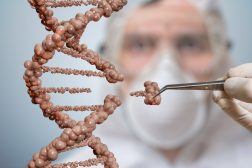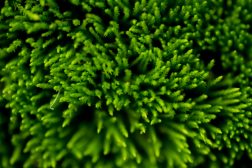thermometer
(Science: physics) An instrument for measuring temperature, founded on the principle that changes of temperature in bodies are accompained by proportional changes in their volumes or dimensions.
The thermometer usually consists of a glass tube of capillary bore, terminating in a bulb, and containing mercury or alcohol, which expanding or contracting according to the temperature to which it is exposed, indicates the degree of heat or cold by the amount of space occupied, as shown by the position of the top of the liquid column on a graduated scale. See centigrade, fahrenheit, and Reaumur. To reduce degrees Fahrenheit to degrees Centigrade, substract 32 deg and multiply by 5/9; to reduce degrees Centigrade to degrees Fahrenheit, multiply by 9/5 and add 32 deg . Air thermometer, balance thermometer, etc. See Air, Balance, etc. Metallic thermometer, a form of thermometer indicating changes of temperature by the expansion or contraction of rods or strips of metal. Register thermometer, or self-registering thermometer, a thermometer that registers the maximum and minimum of temperature occurring in the interval of time between two consecutive settings of the instrument. A common form contains a bit of steel wire to be pushed before the column and left at the point of maximum temperature, or a slide of enamel, which is drawn back by the liquid, and left within it at the point of minimum temperature.
Origin: Thermal.
Dictionary > Thermometer
You will also like...

Genetic Engineering Advantages & Disadvantages
This tutorial presents the benefits and the possible adverse eventualities of genetic engineering. Know more about this ..

Bryophytes
Bryophytes (nonvascular plants) are a plant group characterized by lacking vascular tissues. They include the mosses, th..

Growth Patterns
This tutorial describes the sigmoid curve, annual plant growth, tree growth, human growth, and insect growth as the grow..

Neurology of Illusions
Illusions are the perceptions and sensory data obtained from situations in which human error prevents us from seeing the..

Population Growth and Survivorship
This lesson looks at population attributes, regulation, and growth. It also covers population genetics, particularly gen..

Respiration
The human respiratory system is an efficient system of inspiring and expiring respiratory gases. This tutorial provides ..

